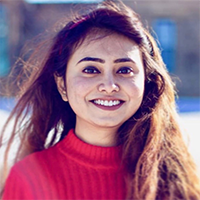Position: Graduate Research Assistant
Current Institution: University of Wisconsin-Madison
Abstract: Differential Privacy and Cryptography – A Symbiotic Relationship
Over the past few years, differential privacy (DP) has emerged as the de-facto standard for achieving data privacy and is starting to get adopted by government agencies as well as major commercial organizations, such as Microsoft, Google and Apple. On the other hand, modern cryptography has been the backbone of secure systems for over three decades and is an integral component of our daily digital lives. Traditionally, DP and cryptography have been studied in isolation from each other. As a result, practical deployments of DP and cryptographic protocols have faced various challenges, such as low utility, vulnerability to inference attacks and unrealistic trust assumptions. I argue that marrying techniques from the two areas would lead to mutually beneficial solutions that can mitigate these challenges, thereby pushing the frontiers of practical deployment for both. Further, with the increasing need for analytics on sensitive data shared across mutually untrusting parties (for example, private data federation of hospitals), systems that employ both DP (to ensure data privacy) and cryptography (for secure computation among mistrustful parties) have become a crucial necessity. My thesis research explores the synergy between DP and cryptography through novel algorithms that expose the rich interconnections between the two areas, both in theory and practice.
Bio:
Amrita Roy Chowdhury is a PhD student at the University of Wisconsin-Madison and is advised by Prof. Somesh Jha. She completed her Bachelor of Engineering in Computer Science from the Indian Institute of Engineering Science and Technology, Shibpur where she was awarded the President of India Gold Medal. Her work explores the synergy between differential privacy and cryptography through novel algorithms that expose the rich interconnections between the two areas, both in theory and practice. She has been recognized as a Rising Star in EECS, 2020 and a 2021 Facebook Fellowship finalist. She has also been awarded the 2021 CI Fellowship.
